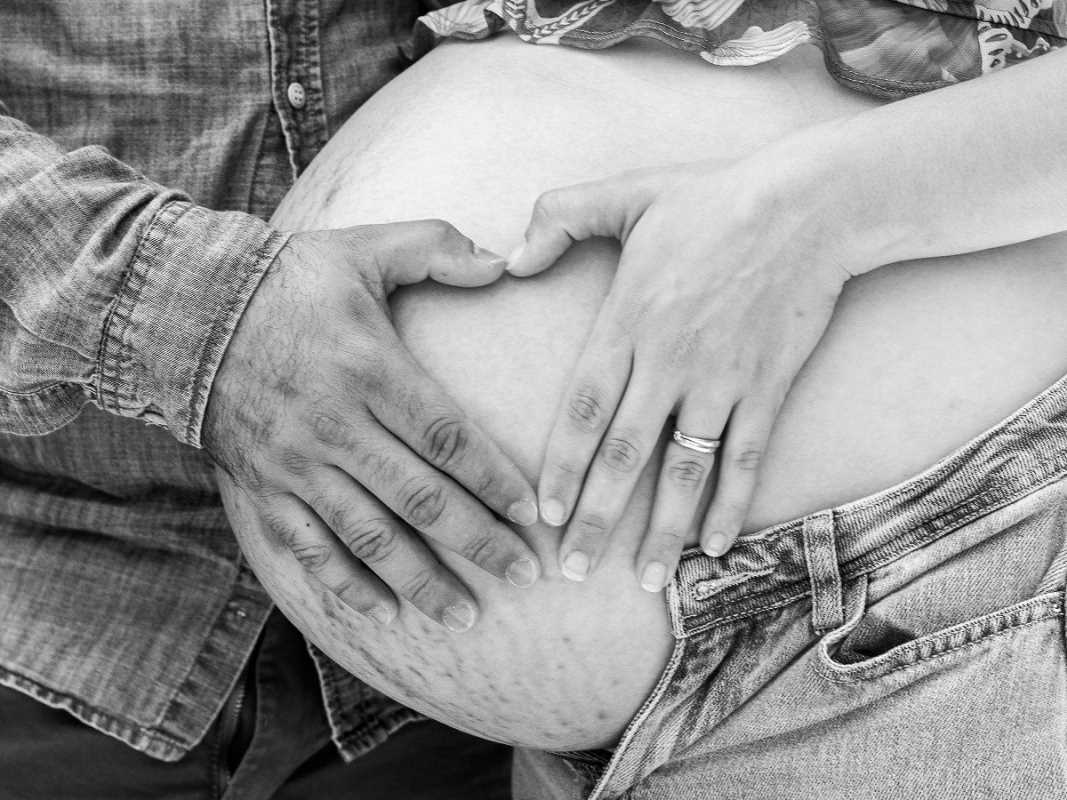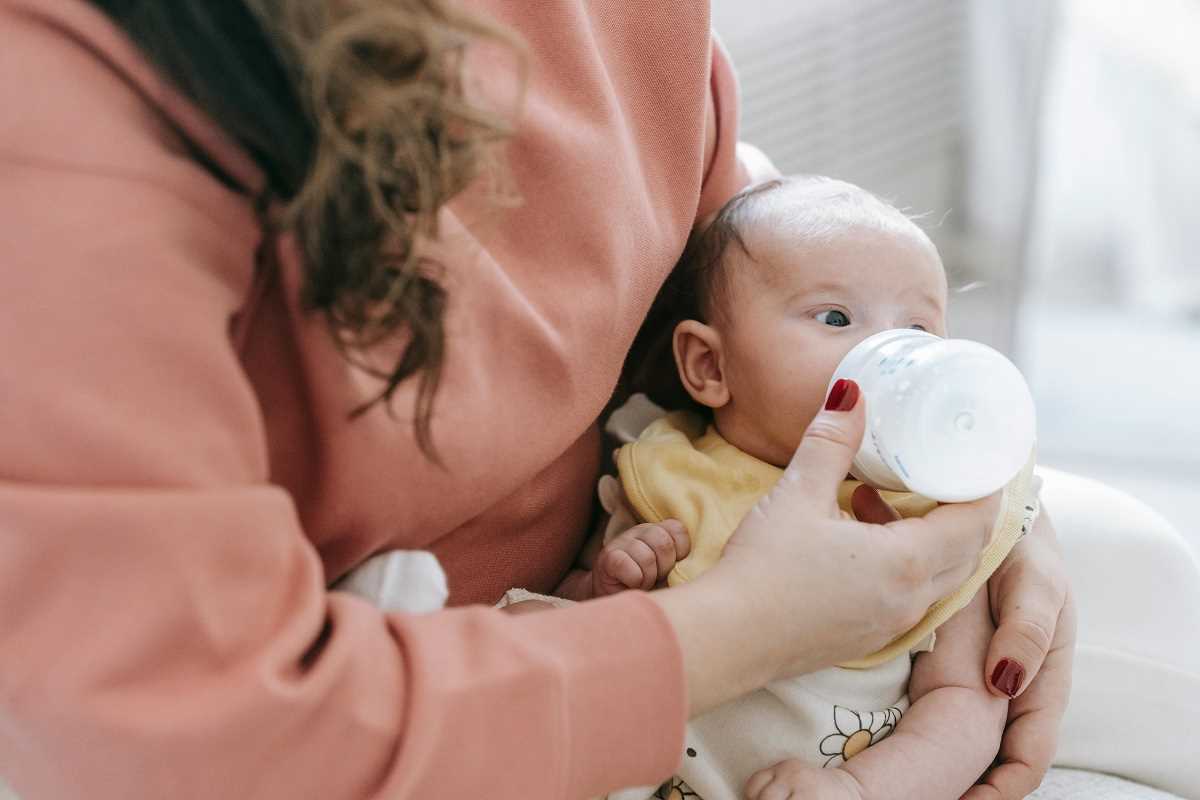Pregnancy is an exciting and sometimes overwhelming time, especially when it comes to nutrition. It’s easy to get lost in a whirlwind of advice, hearsay, and old wives’ tales. Should you really “eat for two”? Is sushi totally off-limits? And what about coffee? With so much conflicting information, it’s no wonder moms-to-be often feel confused.
We’re here to clear up the most common myths about pregnancy nutrition so you can focus on what really matters—nourishing yourself and the little one growing inside you. Let's break it all down!
Myth 1: "You Need to Eat for Two"
One of the most widespread and deep-rooted myths about pregnancy is that you need to double your food intake because you're eating for two. While it’s true that your body needs extra energy and nutrients to support your growing baby, this doesn’t mean you need to eat twice as much.
The Truth:
During pregnancy, your caloric needs do go up, but not by as much as you might think. Most women only need an additional 300–500 calories per day during the second and third trimesters. That’s roughly equivalent to a bowl of oatmeal with some sliced fruit or an extra sandwich. Overeating unnecessarily could lead to excessive weight gain, increasing the risk of gestational diabetes, high blood pressure, and other complications.
Practical Tip:
Focus on quality instead of quantity! Choose nutrient-dense foods like lean proteins, whole grains, fruits, and veggies. These provide essential nutrients for you and your baby while keeping unnecessary calories in check.
Myth 2: "You Can’t Have Seafood or Sushi"
Many pregnant women are told to avoid all seafood, and sushi is often the first item to hit the "no-go" list. The fear stems from concerns about mercury, foodborne illness, and parasites, but this myth isn’t entirely accurate.
The Truth:
Not all seafood is off-limits. Fish is an excellent source of omega-3 fatty acids, which are crucial for your baby’s brain and eye development. The key is to choose low-mercury options like salmon, sardines, herring, or trout and avoid high-mercury fish like king mackerel, shark, or swordfish.
When it comes to sushi, raw fish is generally a concern due to the potential for foodborne illnesses, which pregnancy makes you more vulnerable to. However, fully cooked sushi rolls—think California rolls made with cooked crab—are completely safe to eat.
Practical Tip:
Enjoy seafood in moderation and stick to 2–3 servings per week of low-mercury varieties. Try incorporating fish into meals by baking salmon or adding canned tuna (in water, not oil) to salads. If you’re craving sushi but want to play it extra safe, go for vegetarian rolls!
Myth 3: "Vitamin Supplements Can Replace a Balanced Diet"
Prenatal vitamins often steal the spotlight during pregnancy, with some women thinking they can use these as a substitute for eating healthily. After all, if the vitamins cover key nutrients like folic acid and iron, why stress over every meal, right?
The Truth:
While prenatal vitamins are essential for filling nutritional gaps (and yes, they’re non-negotiable during pregnancy), they should be seen as a safety net, not your main source of nutrients. Whole foods provide a wider range of vitamins, minerals, antioxidants, and fiber than a pill can offer.
Additionally, some nutrients—like calcium—are better absorbed from food sources. Skipping real food in favor of supplements can leave you missing out on essential nutrients that you and your baby need.
Practical Tip:
Take your prenatal vitamins daily, but don’t rely on them alone. Incorporate nutrient-rich foods into your meals. For example, leafy greens, beans, and fortified cereals are great sources of folate, while lean meats, spinach, and lentils can help maintain healthy iron levels.
Myth 4: "Pregnant Women Should Avoid All Caffeine"
If you’re a coffee lover, you’ve probably heard this discouraging advice more times than you can count. The idea that caffeine should be completely avoided during pregnancy is enough to send caffeine enthusiasts into a panic. But is it accurate?
The Truth:
Good news for coffee drinkers—moderation is key! Research suggests that consuming up to 200 mg of caffeine per day (about one 12-ounce cup of coffee) is safe during pregnancy. Going over this limit, however, could increase the risk of miscarriage or low birth weight.
Don’t forget that caffeine isn’t just in coffee; it’s also in chocolate, tea, energy drinks, and soda, so you’ll want to keep an eye on your overall intake.
Practical Tip:
Stick to one cup of coffee a day, or consider switching to decaf if you like to have multiple cups. If you enjoy tea, go for caffeine-free herbal options, but make sure to double-check the ingredient lists, as not all herbs are pregnancy-safe.
Myth 5: "You Should Avoid All Cheese"
Some cheeses get a bad rap during pregnancy for potentially carrying listeria, a bacteria that can harm your baby. But does this mean all cheese should be banished from your plate for nine months?
The Truth:
Soft cheeses made from unpasteurized milk, like brie, feta, and blue cheese, are risky because they’re more likely to carry listeria. However, most commercially available cheeses in the U.S. are pasteurized and completely safe to eat. That includes pasteurized versions of cheddar, mozzarella, cream cheese, and, yes, even brie.
Practical Tip:
When buying cheese, check the label to confirm it’s made from pasteurized milk. Processed, pasteurized cheeses can make great snacks when paired with whole-grain crackers or fruit.
Myth 6: "Carbs Are Bad During Pregnancy"
Low-carb diets have gained popularity in recent years, leading some women to think they should skip or minimize carbs while pregnant. But cutting carbs can do more harm than good for you and your baby.
The Truth:
Carbohydrates are your body’s primary energy source and play a critical role in your baby’s growth and brain development. What matters is the type of carbs you’re eating. Refined carbs like white bread and sugary snacks can lead to quick blood sugar spikes, but complex carbs like whole grains, fruits, and legumes provide steady energy along with fiber, vitamins, and minerals.
Practical Tip:
Instead of eliminating carbs, focus on choosing better ones. Opt for whole-grain bread and pasta, quinoa, oats, sweet potatoes, and fresh fruit. These will keep your energy levels up and help with digestion—something every pregnant woman can appreciate!
Myth 7: "Gaining Weight is a Bad Sign"
Some women worry that gaining weight during pregnancy reflects poor health or eating habits. Social pressures to "bounce back" after having a baby can add to this stress. But gaining weight is both normal and necessary during pregnancy.
The Truth:
Weight gain is essential for supporting your baby’s growth and development. The amount you should gain depends on your pre-pregnancy weight. On average, women gain between 25–35 pounds during pregnancy, although this varies. Rapid or extreme weight changes should be discussed with your healthcare provider, but slow, steady weight gain is nothing to fear!
Practical Tip:
Rather than obsessing over the scale, focus on nourishing yourself with healthy foods and staying active in a way that feels good. Walking, prenatal yoga, or swimming are all great options.
Pregnancy is full of dos and don’ts, but not everything you hear is true. By debunking these common myths, we hope you feel more confident about your nutrition choices as you grow your little one. The most important rule? Listen to your body and consult with your healthcare provider when in doubt.
 (Image via
(Image via





